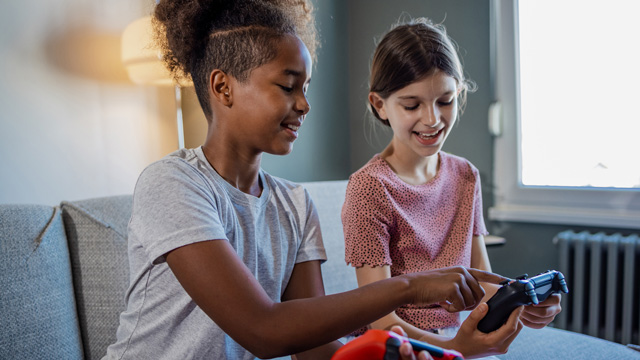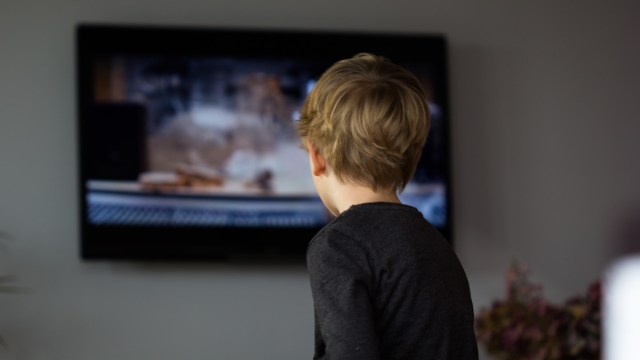Several Gaming YouTubers have become global superstars in recent years
Like a lot of eight-year-olds, my daughter Alex loves video games. If given unfettered access, I imagine that she’d play video games for hours, if not days, pausing only for occasional snack and potty breaks. And like so many of her peers, in addition to playing, my kid also thoroughly enjoys watching others play video games. Whether it’s Roblox, Minecraft, or Mario Kart, watching other video gamers play IRL, via live-streaming platforms like Twitch or on video-sharing sites like YouTube, has become a preoccupation for her.
While the phenomenon of kids watching others play video games isn’t anything new, the trend of video gaming as a spectator sport has gained steam in recent years. Known as “Let’s Play” videos, this genre of video content (either live-streamed or pre-recorded) features video gamers sharing screens and commentary over gameplay, often with the addition of personal storytelling, humorous anecdotes, and lots of enthusiastic yelling and screaming (iykyk). What was once deemed a niche endeavor has grown into big business and turned some video-gaming content creators like PewDiePie, Markiplier, JuegaGerman, and DanTDM (to name just a few) into global superstars.
Today, Amazon-owned Twitch boasts more than 140 million monthly active users, and YouTube Gaming reported more than 40 million active gaming channels and 100 billion hours of watch time in 2020, the vertical’s biggest year since it launched.
Experts say kids’ interest in watching gaming YouTubers play is similar to watching any other sport. “The truth is, watching video games is not that much different from watching football games, poker, racing, golf, or some reality shows. Viewers learn a bit about the game, are entertained, and have something to share with like-minded friends,” said Dr. Randy Kulman, founder and president of LearningWorks for Kids.
For many parents, the practice of watching someone else play video games instead of playing the games yourself doesn’t make much sense. But for kids who have been raised on a steady diet of digital media and entertainment, watching others play video games can be both fun and educational.
“As humans, we have been playing since the beginning of time. Play is important for human well-being throughout our lifespan, and crucial to creativity and happiness. As a video game researcher, I was happily surprised to see this shift highlighting the positive uses and effects of games,” author and video gaming expert Dr. Rachel Kowert wrote in a blog post.
So what’s with the fascination of watching others play video games? Experts say there are many reasons why our kids enjoy watching others play video games, including:
There’s plenty to learn from others: Upskilling is a big reason why kids like watching others, especially seasoned gaming experts, play video games. By observing more skilled players, like gaming YouTubers, newbie gamers pick up tips and tricks that they can apply to their own gameplay.
Trying out new games: Some video games are expensive or are rated for older audiences, so watching others play games that are new or out of reach gives kids the opportunity to “test drive” a game before committing to making a purchase.
Building social connections: Viewing something together is inherently social, and watching others play video games on platforms like Twitch or YouTube lets kids connect with others who have shared interests and have the chance to discuss the games they are watching.
Creating a sense of community: Many online video games are multiplayer and require collaboration and teamwork to succeed. Watching other gamers work together to achieve success as a team can help build community and a sense of belonging, allowing kids to feel like they are part of a larger group of fans.
It’s fun and entertaining: Simply put, watching others play video games is entertaining and engaging, especially if the players are skilled, funny, and have big personalities. Kids enjoy the thrill of watching their favorite gaming YouTubers or Twitch streamers play games they love and succeed in challenging tasks.
As parents of young children, we often receive a stream of cautionary advice about the harms of our kids’ overexposure to too many video games and too much screen time. While the negative aspects of excessive video gaming and screen time have long been documented, ranging from increased social isolation to impaired mental health, a growing body of research is showing heretofore unknown benefits to playing video games, particularly for developing young minds.
In a recent study published in the Journal of the American Medical Association, researchers found that children who played video games showed enhanced cognitive performance compared to those who did not play video games. “In contrast to the negative associations with mental health, video gaming has been proposed to enhance cognitive flexibility by providing skills that can be transferred to various cognitive tasks relevant to everyday life.”
Researchers found that video-gaming kids fared better than their non-gaming counterparts in cognitive flexibility, such as certain decision-making skills, as well as better visual and spatial memory. Another recent study by researchers at the University of Houston College of Education examined the video-gaming habits of diverse urban public-school preteen students and concluded no direct linkage between video game playing and diminished cognitive performance.
Related: 12 Family Video Games You Can Play with Your Kids (That Are Actually Fun)

If you’re concerned about your kid’s video-gaming habits, here are a few considerations:
Moderation is key: Most experts agree that video gaming can be a healthy and enjoyable activity for kids as long as it’s done in moderation. Parents should monitor their kid’s gaming habits and make sure they aren’t trading video gaming time for other important activities such as homework, physical play, and socializing with friends and family.
Establish clear screen time guidelines: The American Academy of Pediatrics suggests that children between the ages of 2 and 5 years old should have no more than one hour of screen time per day, while children ages 6 and up should have consistent limits on the amount of time they spend on screens.
Monitor game content: The content of the games that children play can have a significant impact on their development and behavior. Parents should be aware of the content of the games their children are playing and make sure that it is age-appropriate and aligns with their family values.
Consider positive effects of gaming: While there can be potential negative effects of video gaming, such as addiction and exposure to violent content, there also are potential positive effects, such as improved cognitive skills, problem-solving abilities, and social connections with other gamers.
Get involved: Experts agree that parental involvement and monitoring are key to ensuring that video gaming is a healthy and positive activity for children. Parents should talk to their children about their gaming habits, set clear rules and boundaries, and be aware of warning signs of problematic gaming behavior.











